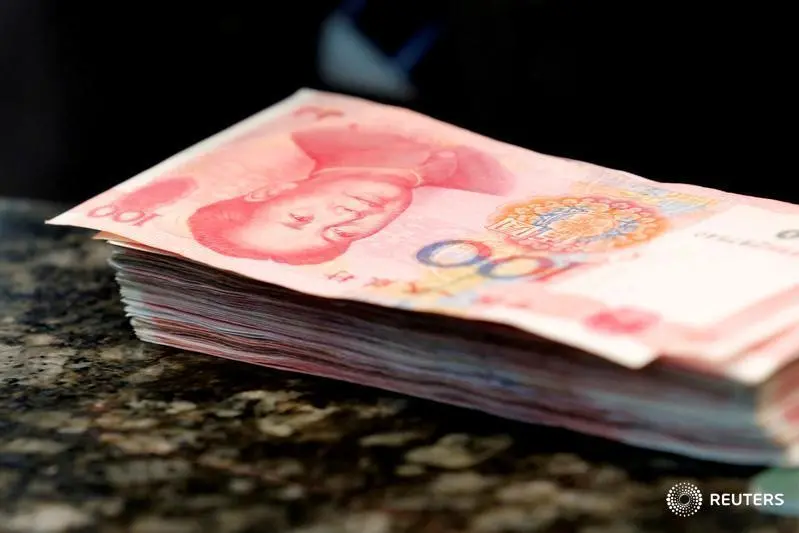PHOTO
(The author is a Reuters Breakingviews columnist. The opinions expressed are his own.)
HONG KONG - Yuan bulls are putting pressure on U.S. President Joe Biden to figure out a way to walk back tariffs. The currency is on a blistering rally, reinforced by foreign capital. Its strength has yet to dent China’s trade surplus, but could further saddle U.S. consumers with higher prices.
China used to depress its exchange rate to support cheap exports, long a bone of contention with American officials attempting to rebalance the trade relationship. These days, the country is making higher quality goods and importing more dollar-denominated commodities, so suppressing the yuan makes less and less economic sense. In recent years Beijing has had far more trouble keeping the renminbi (the currency’s official name) from overheating, and 2021 is proving particularly tricky.
The yuan is now changing hands at around 6.38 per dollar, its strongest position in three years, having firmed nearly 12% since May 2020. China’s relatively attractive interest rates and recovering economy have spurred domestic and foreign investors to increase holdings of renminbi-denominated assets. State media has taken to threatening speculators, as regulators tweak policies, including hiking outbound investment quotas, to take the heat off. Barring a surprise rate hike by the Federal Reserve, or a drastic relaxation of Chinese capital controls, more appreciation looks certain.
The question for China’s trade partners is whether their importers will keep absorbing this exchange rate impact, or start passing it to consumers. A stronger yuan is coming on top of higher commodity prices and supply chain shortages. In the United States, tariffs averaging around 19% have been applied to two-thirds of Chinese exported goods. U.S. consumer prices increased by the most in nearly 12 years in April. While a little inflation is welcome, a sharp rise could put economic recovery at risk.
China hasn’t met its commitments under the Phase 1 trade agreement, and in theory that allows Washington to tax Chinese imports even harder. Yet the duties haven’t accomplished their purpose, and now risk backfiring spectacularly. Diplomatically Washington might not want to be seen giving Beijing something for nothing, but fortunately China has tariffs it could lower in exchange. The time has come to cut a deal.
CONTEXT NEWS
- China’s central bank on May 31 directed financial institutions to hold more foreign exchange in reserve after the yuan hit a three-year high against the dollar.
- Boosted by surging export receipts and investment flows, the value of foreign cash deposits in China's banks leapt above $1 trillion for the first time in April, official data shows. In the 16 months to April, dollar deposits rose by $242.2 billion, PBOC data shows, bigger than inflows into China's bond market, which totalled about $220 billion for the period.
- A private manufacturing survey showed the price of Chinese exported goods rose at the fastest rate in three years in May.
- U.S. Trade Representative Katherine Tai on May 12 told members of Congress that her office was conducting a “top to bottom” review of China policies.
(The author is a Reuters Breakingviews columnist. The opinions expressed are his own.)
(SIGN UP FOR BREAKINGVIEWS EMAIL ALERTS http://bit.ly/BVsubscribe | Editing by Robyn Mak and Katrina Hamlin) ((pete.sweeney@thomsonreuters.com; Reuters Messaging: pete.sweeney.thomsonreuters.com@reuters.net))





















